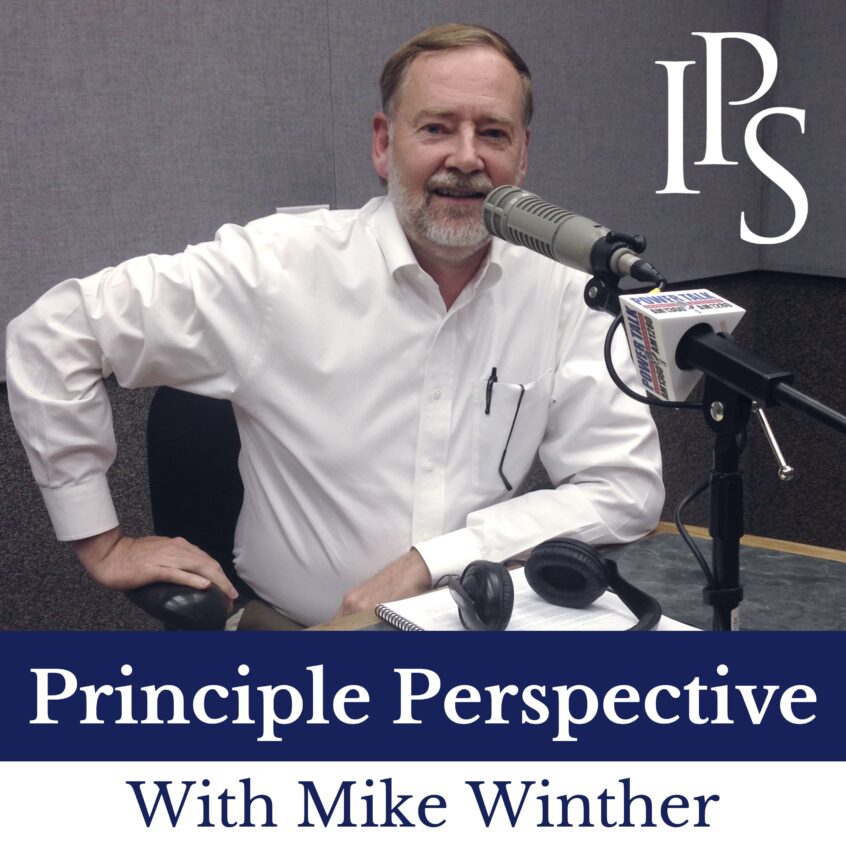LISTEN NOW
Mike Winther continues his lecture by reviewing the key principles of whether the branches of government were elected or appointed, how the states are more represented than the people, and how the states created the federal government.
Then he continues with how biblical principles should apply or were intended to apply to our current system. This is the second part of the Founding Principles in the U.S. Constitution series delivered on July 19th, 2011 as a part of a Government and Economics Conference hosted by IPS in Modesto, California.
You’ll Learn:
- [01:02] We already talked about the three branches of Government and whether they were elected or appointed. Three of the four bodies were appointed, not elected. States are more represented than the people. States created the federal government.
- [01:39] We have three branches of government to help control government power and prevent it from becoming abusive.
- [02:05] Isaiah 33:22 God is our judge, lawmaker, and King. There’s a legislative, administrative, and adjudication component to government.
- [03:33] Mike talks about horizontal separation and vertical separation in our governments.
- [03:59] Separate but equal is simply not true. The President has a four-year term. The Senator has a six-year term. Representatives have a two-year term. Supreme Court Justices are appointed for life.
- [04:52] Three forms of accountability. Impeachment. Checks and balances between branches. The elections.
- [06:18] The house is the most accountable and the most powerful. The presidency is the second most powerful branch. The Senate is the third. The Supreme Court has the least electoral accountability.
- [07:16] Enumerated powers means that the powers given by the states are listed or enumerated. We can either list powers the government can have or powers the government cannot have.
- [11:46] The Anti-Federalists were concerned that the constitution would give the government too much power. They wanted a Bill of Rights.
- [15:00] Is healthcare a right? Rights shouldn’t violate other people’s rights.
- [19:25] The right that trumped every right was property rights.
- [23:37] Should the government limit speech? Scenarios that force students to make bad choices. The lifeboat mentality.
- [27:42] Satan wants the roles of the church given to some other institution like the government, so that they’ll get the glory.
- [28:18] Who should deal with society’s evils?
- [32:03] The denominations of churches of the colonists and their organizational charts. Congregational or more of a democracy, Anglican and Episcopalian which is more of a monarchy, and the Presbyterians which are an oligarchy.
- [34:13] Not all of the brilliance of the Constitution was fully understood. The house is elected or congregational. The executive is sort of like a monarchy. The US Senate is like an oligarchy. This is a mixed form of government.
- [42:13] Foreign intervention and declaring war. Plausible deniability in funding by Congress. This is a violation of the Constitution.
- [49:31] Should the US get involved in foreign conflicts? Is it mandatory? Is it prudent? Is it permissible to abstain? When the government intervenes, it’s all or nothing. An example using The Good Samaritan.
- [54:42] We have no clue what our government is doing overseas. If we don’t trust them for domestic decisions, should we trust them for overseas decisions?
- [58:33] Our political environment isn’t following the biblical standards of how to run the military. We need to hurry and educate America.
- [59:58] The Constitution did not allow for income tax. In 1913, the 16th amendment paved the way for income tax.
- [01:01:10] The general welfare clause loophole. The founding fathers lived in an era when there was no such thing as Government welfare. Welfare meant well-being. There was private welfare, public welfare, local welfare, and general welfare.
Your Resources:
- Books to browse
- Five Principles By Michael Winther
- Founding Principles in the U.S. Constitution, Part 1 (Need Link-Episode 14)
- The Anti-Federalist Papers
- The Incredible Bread Machine Film

